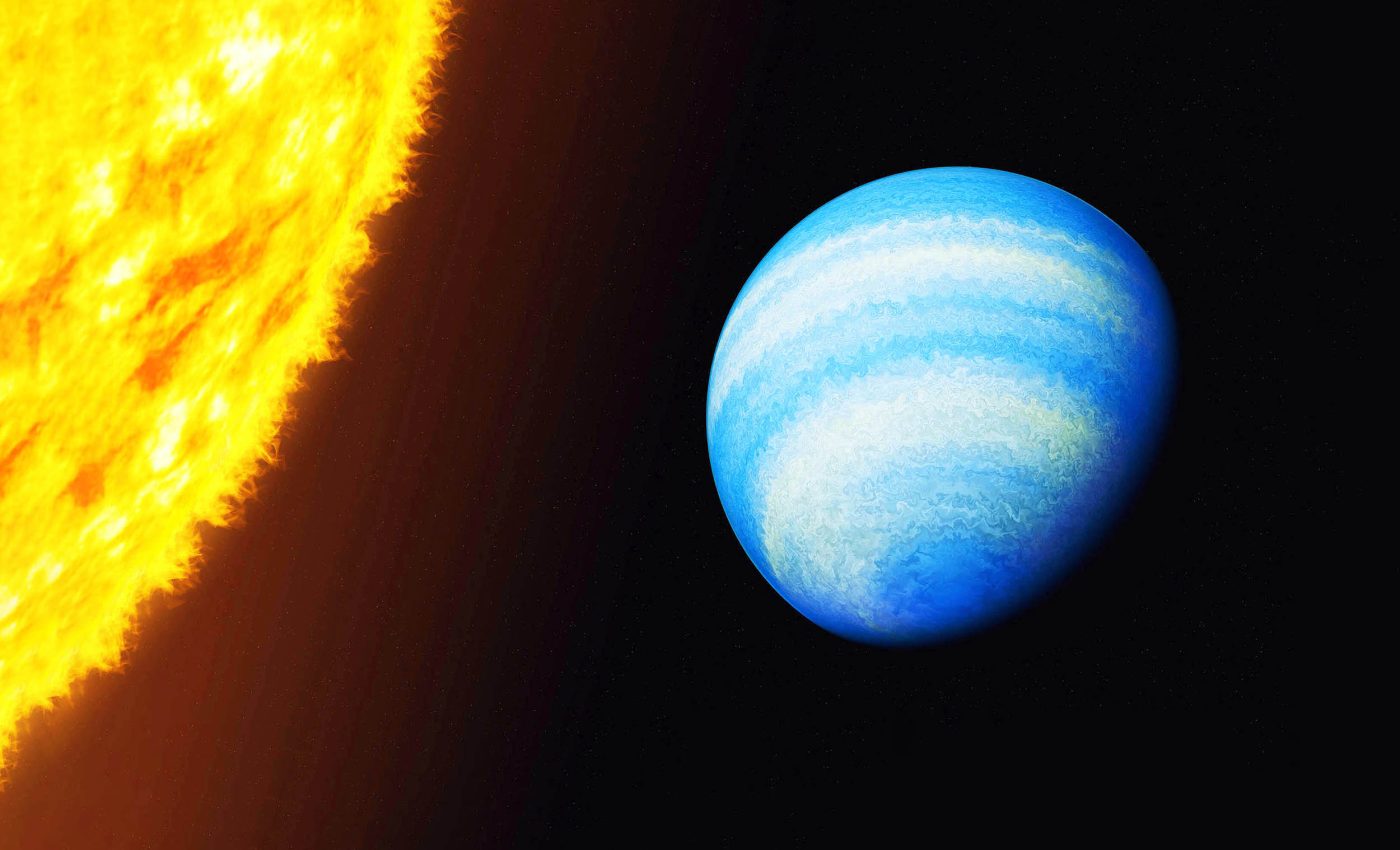
Deadly exoplanet with 'glass rain' smells like rotten eggs
Have you ever wondered what a gas giant might smell like? One nearby exoplanet, HD 189733 b, sure does make its presence known with a scent that you’d probably want to avoid — it smells like rotten eggs.
Understandably, this aromatic aspect is actually extremely fascinating to our scientists.
Meet HD 189733 b, a Jupiter-sized exoplanet that orbits a star relatively close to our own cosmic neighborhood.
Recent research from Johns Hopkins University reveals that this planet is abundant in hydrogen sulfide, a gas notorious for its rotten egg smell.
Dr. Guangwei Fu, the lead researcher and an astrophysicist at Johns Hopkins, spearheaded this fascinating study.
HD 189733 b has hydrogen sulfide
“Hydrogen sulfide is a major molecule that we didn’t know was there. We predicted it would be, and we know it’s in Jupiter, but we hadn’t really detected it outside the solar system,” said Fu.
“We’re not looking for life on this planet because it’s way too hot, but finding hydrogen sulfide is a stepping stone for finding this molecule on other planets and gaining more understanding of how different types of planets form.”
By uncovering these elements, we pave the way toward a deeper understanding of the cosmos.
Galactic benchmark
HD 189733 b is practically in our astronomical backyard, located merely 64 light-years away. Notably, it’s the closest “hot Jupiter” we can observe transiting its star.
This proximity, coupled with its rapid two-Earth-day orbit, makes it an ideal subject for in-depth studies of exoplanetary atmospheres.
Studying such close exoplanets can revolutionize our understanding of atmospheric dynamics. This intriguing prospect is what drives scientists to explore and unravel the mysteries of distant worlds.
Hellish haven with glass rain
HD 189733 b was first observed back in 2005 and earned the nickname ‘hot Jupiter’ due to its similar chemical makeup to Jupiter, but with much more sizzling temperatures.
The planet is 10% larger than Jupiter and maintains a blazing average temperature of 1,700°F (926°C). This searing heat is a result of its close proximity to the host star.
Another shocking aspect of HD 189733 b is its unprecedented weather conditions. Imagine winds so powerful that they sweep glass-like silicate particles at a blistering speed causing a sideways rain.
“HD 189733 b is not only a gas giant planet, but also a ‘giant’ in the field of exoplanets because it is one of the first transiting exoplanets ever discovered,” said Fu.
Glass rain on HD 189733 b and its implications
The phenomenon of glass rain on HD 189733b is both extraordinary and terrifying. These microscopic shards of glass, composed primarily of silicates, are propelled by fierce winds across the planet’s atmosphere.
At speeds reaching up to 5,000 miles per hour, this glass rain doesn’t fall gently like rain on Earth; instead, it lashes horizontally, creating a truly alien meteorological event.
The incorporation of these high-speed silicate particles transforms the weather into a hazardous spectacle, where the atmosphere becomes a symphony of sharp, swirling fragments.
This unique scenario not only highlights the diversity of exoplanetary climates but also underscores the violent and inhospitable nature of some celestial bodies in our universe.
Such extreme weather patterns offer invaluable insights into atmospheric dynamics and the complex interactions between a planet and its stellar environment.
Sulfur’s role on exoplanet HD 189733
“Sulfur is a vital element for building more complex molecules, and — like carbon, nitrogen, oxygen, and phosphate — scientists need to study it more to fully understand how planets are made and what they’re made of,” Fu said.
The observation of hydrogen sulfide gives scientists a new tool to track sulfur in gas planets outside our solar system.
The implications of this discovery are huge. As per Fu, studying more hot Jupiters might give insights on how these planets form as compared to our own Jupiter.
Saying no to methane
The egg-smelling exoplanet HD 189733 b also surprised astronomers by ruling out any presence of methane in its atmosphere, countering previous claims about the molecule’s abundance.
“We had been thinking this planet was too hot to have high concentrations of methane, and now we know that it doesn’t,” Fu clarified.
In the near future, Fu’s team plans to track sulfur in more exoplanets and figure out how high levels of the compound might influence how they form near their parent stars.
“We want to know how these kinds of planets got there, and understanding their atmospheric composition will help us answer that question,” Fu elucidated.
Egg-smelling exoplanet’s significance
“This Jupiter-mass planet is very close to Earth and has been very well studied. Now we have this new measurement to show that indeed the metal concentrations it has provide a very important anchor point to this study of how a planet’s composition varies with its mass and radius,” Fu said.
“The findings support our understanding of how planets form through creating more solid material after initial core formation and then are naturally enhanced with heavy metals.”
It is noteworthy that this crucial research was supported by NASA through the JWST GO program. The findings from this study not only enhance our knowledge about exoplanets but provide valuable insights that could potentially revolutionize our understanding of planetary formation and composition.
So, even though HD 189733 b might smell a bit funky, its importance in our quest to understand the cosmos is nothing to snicker at.
The study is published in the journal Nature.
—–
Like what you read? Subscribe to our newsletter for engaging articles, exclusive content, and the latest updates.
Check us out on EarthSnap, a free app brought to you by Eric Ralls and Earth.com.
—–














